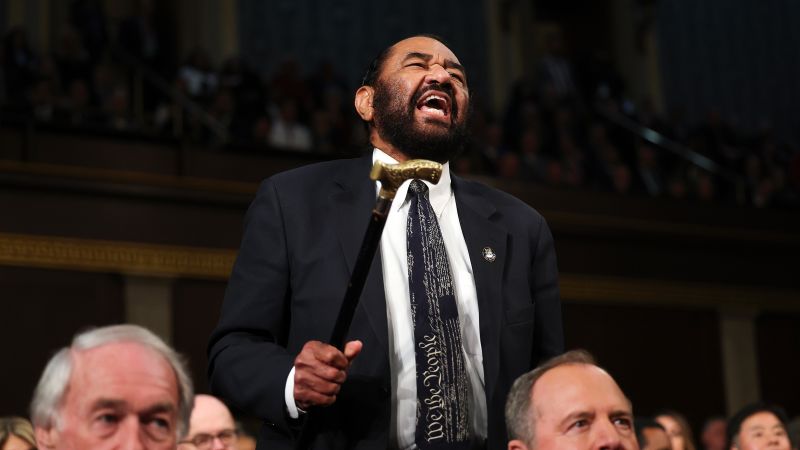In a recent development, the US House is poised to make a significant decision regarding Democratic Rep. Al Green’s conduct during President Donald Trump’s address to Congress. House Speaker Mike Johnson strongly criticized Green’s actions, labeling them as “shameful and egregious” and asserting that they brought dishonor to the institution of Congress. Johnson called for a swift censure vote, emphasizing the need for bipartisan support in upholding the integrity of the House.
Censure, while a serious form of reprimand, does not entail specific punitive measures beyond publicly denouncing the lawmaker’s behavior. It falls short of expulsion but carries weight as a formal condemnation. The frequency of censure instances has been on the rise in recent years, reflecting a shift in how misconduct is addressed within Congress.
Despite Democrats’ unsuccessful attempt to block the censure motion, Green remains resolute in his stance, expressing willingness to face the consequences of his protest and indicating a readiness to repeat his actions if necessary. The unfolding events underscore the ongoing tensions and differing perspectives within the political landscape, highlighting the complexities of maintaining decorum and accountability in governmental proceedings.

